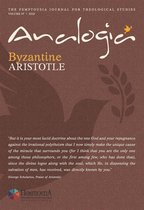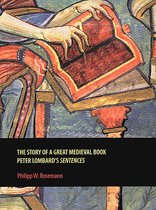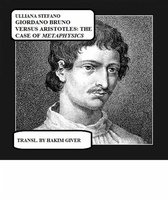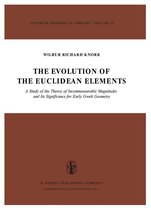Publications in Medieval Studies 29 - Creation as Emanation Ebook Tooltip Ebooks kunnen worden gelezen op uw computer en op daarvoor geschikte e-readers. The Origin of Diversity in Albert the Great's On the Causes and the Procession of the Universe
Afbeeldingen
Sla de afbeeldingen overArtikel vergelijken
- Engels
- E-book
- 9780268159115
- 25 april 2001
- 248 pagina's
- Adobe ePub
Samenvatting
The Liber de causis (De causis et processu universitatis a prima causa), a monotheistic reworking of Proclus’ Elements of Theology, was translated from Arabic into Latin in the twelfth century, with an attribution to Aristotle. Considering this Neoplatonic text a product of Aristotle's school and even the completion of Aristotle’s Metaphysics, Albert the Great concluded his series of Aristotelian paraphrases by commenting on it.
To do so was to invite controversy, since accidents of translation had made many readers think that the Liber de causis taught that God made only the first creature, which in turn created the diverse multitude of lesser things. Thus, Albert’s contemporaries in the Christian West took the text to uphold the supposedly Aristotelian doctrine that from the One only one thing can emanate—a doctrine they rejected, believing as they did that God freely determined the number and kinds of creatures. Albert, however, defended the philosophers against the theologians of his day, denying that the thesis "from the One only one proceeds" removed God’s causality from the diversity and multiplicity of our world. This Albert did by appealing to a greater theologian, Pseudo-Dionysius the Areopagite, and equating the being that is the subject of metaphysics with the procession of Being from God's intellect, a procession Dionysius described in On the Divine Names.
Creation as Emanation examines Albert's reading of the Liber de causis with an eye toward two questions: First, how does Albert view the relation between faith and reason, so that he can identify creation from nothing with emanation from God? And second, how does he understand Platonism and Aristotelianism, so that he can avoid the misreadings of his fellow theologians by finding in a late-fifth-century Neoplatonist the key to Aristotle’s meaning?
Productspecificaties
Inhoud
- Taal
- en
- Bindwijze
- E-book
- Oorspronkelijke releasedatum
- 25 april 2001
- Aantal pagina's
- 248
- Ebook Formaat
- Adobe ePub
- Illustraties
- Nee
Betrokkenen
- Hoofdauteur
- Therese Bonin
- Tweede Auteur
- Theraese M. Bonin
- Hoofduitgeverij
- University Of Notre Dame Press
Lees mogelijkheden
- Lees dit ebook op
- Android (smartphone en tablet) | Kobo e-reader | Desktop (Mac en Windows) | iOS (smartphone en tablet) | Windows (smartphone en tablet)
Overige kenmerken
- Studieboek
- Nee
- Verpakking breedte
- 152 mm
- Verpakking hoogte
- 15 mm
- Verpakking lengte
- 229 mm
- Verpakkingsgewicht
- 281 g
EAN
- EAN
- 9780268159115
Je vindt dit artikel in
- Categorieën
- Taal
- Engels
- Beschikbaarheid
- Leverbaar
- Stroming of stijl
- Middeleeuwse stijl
- Boek, ebook of luisterboek?
- Ebook
Kies gewenste uitvoering
Prijsinformatie en bestellen
De prijs van dit product is 28 euro en 99 cent. De meest getoonde prijs is 30 euro en 99 cent. Je bespaart 6%.- E-book is direct beschikbaar na aankoop
- E-books lezen is voordelig
- Dag en nacht klantenservice
- Veilig betalen
Rapporteer dit artikel
Je wilt melding doen van illegale inhoud over dit artikel:
- Ik wil melding doen als klant
- Ik wil melding doen als autoriteit of trusted flagger
- Ik wil melding doen als partner
- Ik wil melding doen als merkhouder
Geen klant, autoriteit, trusted flagger, merkhouder of partner? Gebruik dan onderstaande link om melding te doen.








